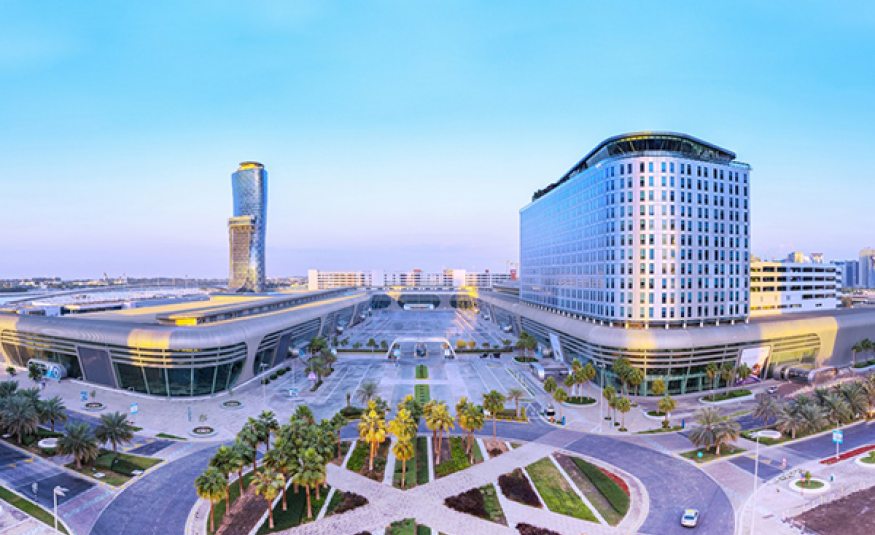The Abu Dhabi National Exhibitions Company (ADNEC) has announced its pledge to Net Zero Carbon Events, promising to produce a net zero carbon footprint for events by 2050. This pledge is part of a global initiative from an organising task force initiated by leading events industry stakeholders through global industry trade associations.
ADNEC’s pledge also supports the United Arab Emirates (UAE) Net Zero by 2050 Strategic Initiative to reduce carbon, which will see the country spend over AED 600bn (US$163bn) on renewable energy during this time period.
The 2021 United Nations Climate Change Conference (COP26), in Glasgow, Scotland, is currently aiming to accelerate action towards the goals of the Paris Agreement and the UN Framework Convention on Climate Change. ADNEC says its commitment aims to support the Paris Agreement goals of limiting global warming to 1.5°C and reducing total global GHG emissions by 50% by 2030.
Commenting on the signing of the pledge, Humaid Matar Al Dhaheri, managing director and group CEO for ADNEC Group, said: “Through our net zero commitment, we aspire to bring about meaningful change for the entire value chain of the MICE industry.”
He added: “The signing of this pledge is augmented by our long-term partnership with the Global Association of The Exhibition Industry (UFI) which plays a key role in shaping important conversations in our business, and we are thrilled to join them and other venues, organisers, exhibitors and suppliers in driving the sector towards net zero.”
ADNEC Net Zero pledge will take the form of strategic planning and action to ensure its operations achieve the target or net zero carbon emissions by 2050, while also influencing the entire value chain to take sustainable and measurable actions.
ADNEC’s plan includes:
- Identifying and prioritising actions to reduce emissions such as energy management, water conservation, materials management, food and beverage waste reduction, housekeeping initiatives, sustainable procurement, stakeholder management and employee engagement and set goals accordingly.
- Addressing residual emissions, once minimised, through the purchase of credible carbon offsets, while looking at transitioning towards carbon removal and carbon capture.
- Contributing resources to develop a collective low carbon roadmap for the events industry and collaborate with partners, suppliers and customers to drive change across the value chain.
- Sharing best practices with the industry to help influence a wider impact of its green initiatives.





